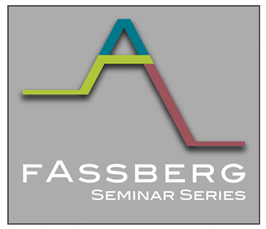Fassberg Seminar: Towards theory of non-Turing biochemical computation and learnability
Fassberg Seminar
- Datum: 11.06.2019
- Uhrzeit: 11:00 - 12:00
- Vortragende(r): Dr. Aneta Koseska
- MPI of Molecular Physiology, Dortmund
- Ort: Max-Planck-Institut für biophysikalische Chemie (MPIBPC)
- Raum: Large Seminar Room
- Gastgeber: Dirk Görlich
- Kontakt: helena.miletic@mpibpc.mpg.de

Cells sense and respond to time-varying chemical signals that reflect the continuously changing environment to which they readily adapt. This ability of cells to process non-stationary signals also implies that the cellular sensing systems must balance between two general, but seemingly opposed demands - plasticity and robustness on the level of the activity of the underlying biochemical networks. Common models of computation such as Turing machines or attractor networks however cannot capture this dynamics. Using dynamical systems formalism, we propose a generic principle of biochemical information processing with metastable states at criticality. This framework not only describes how plasticity and robustness can be unified irrespective of the intrinsic dynamics of the system, but also has broader implications and predicts the emergence of a minimal cognitive system, a working memory on the level of single cells. We demonstrate theoretically and experimentally that the working memory enables biochemical networks to perform history-dependent integration of temporal signals. Investigating the limits of cognitive biochemical information processing, we approach two fundamental computational phenomena in living systems: emergence of cellular identity during development and cellular polarization in non-stationary environments. This in turn enables us to formalize how biochemical networks compute and whether single cells can learn.